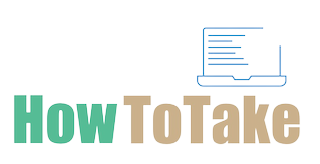How To Take Homeopathic Medicines?
How to take Homeopathic medicines? If you are looking for the answer to this question, you are at the right place. Homeopathy which is also known as homeopathic medicine, is a 200-year-old alternative medicine that claims that it can improve the body’s capacity for self-healing and elicit a healing response. Its practitioners say that it is a comprehensive medical approach built on the principle of treating “like cure-like.” It also makes the claim that utilizing carefully formulated, diluted treatments, can activate the body’s natural healing reaction to illness.
Homeopaths claim that in addition to considering the patient’s medical history, personality, lifestyle, and hereditary variables, they aim to treat the whole person. Homeopathic solutions are provided for specific patients because every person is different.
What are Homeopathic Medicines?
Based on the idea that “like cures like,” homeopathic medicines are a type of complementary medicine. In other words, a chemical that creates symptoms in a healthy person can be used to cure a sick person’s symptoms with a greatly diluted version of those same symptoms. Homeopathic medicines are created through serial dilution and strong shaking, which is used to maximize their therapeutic advantage while reducing any potential illness.
It’s important to note that the scientific consensus is generally skeptical of the effectiveness of homeopathic medicines, and they are not considered a substitute for evidence-based medical treatments. Furthermore, if you have a health concern, it’s advisable to speak to a Doctor for guidance and treatment options.
What are the Uses of Homeopathic medicines?
Many people and some healthcare providers use homeopathic medicines to try and treat various health issues and symptoms, but whether they work is still a big question. So, these medicines are best for things like:
Common Sickness:
People might use them for everyday sicknesses like colds, allergies, and headaches.
Long-Term Problems:
They are also best for ongoing issues like skin conditions, arthritis, and stomach troubles.
Feelings and Emotions:
Some folks use them for things like feeling anxious or sad.
Women’s Health:
Women might use them for things related to their periods, menopause, or pregnancy.
Kids’ Health:
Parents might use them for problems their kids have, like teething or tummy aches.
Allergies:
These are best for allergy problems like hay fever.
Pain Relief:
Some people use them to try and feel better when they have pain, like back pain or headaches.
Stomach Issues:
For things like upset stomachs or heartburn.
Breathing Troubles:
These might be better for conditions like asthma or coughs.
Skin Problems:
Things like eczema, psoriasis, or acne.
Remember, many doctors and scientists are not sure what these medicines do beyond making people feel better because they believe in them. It’s important to talk to a doctor if you’re thinking about using these medicines, especially if you have a serious health problem. Furthermore, they can help you decide what’s best for your health.
How Homeopathic Medicines Are Made?
Many materials are used to make homeopathic medicines. A unique procedure is involved to dilute these chemicals. These are products of Crushing the active ingredient and combining it with alcohol and/or water. This combination has to undergo a lot of diluting.
The active ingredient might not even be present in detectable amounts in the finished product. Vigorous shaking of the mixture ensures each dilution. This is process succussion. Furthermore, Succussion is thought to activate the substance. The more dilute the substance, the higher the potency.
Are Homeopathic Medicines Safe to Use?
Homeopathic remedies are generally safe to use. They do not have any significant side effects because they use only a small amount of a very less concentrated substance. However, if you’re pregnant, breastfeeding, or have a serious medical condition, I recommend you talk to your healthcare professional before using these remedies or any other form of alternative medical care.
Is there any Danger In Using Homeopathic Medicines?
In general, homeopathic medications are reliable and secure to use. The only major risk is that you might decide to use homeopathic treatments instead of going to a conventional doctor. This could result in a critical illness going unrecognized and untreated. I recommend you not to do that.
How to Take Homeopathic Medicines?
The process of homeopathic medicines involves some guidelines, and it’s essential to consult with a qualified homeopathic practitioner for personalized advice. However, here are some general steps for taking homeopathic medicines :
Ways To Take Homeopathic Medicines:
Ask a Homeopath:
Start by asking a licensed homeopathic practitioner. He or she will check your health condition, symptoms, and medical history to recommend an appropriate homeopathic medicine.
Customized Recommendation:
Homeopathic remedies are based on the principle of “like cures like.” The practitioner will select a medicine that suits your specific symptoms and overall health conditions.
Dilution and Potency:
Homeopathic remedies are highly diluted, often to the point where there may be no molecules of the original substance left. They come in various types, such as 6C, 30C, or 200C, indicating the level of dilution and succussion (shaking) during preparation. Your practitioner will prescribe the appropriate potency.
Administration:
Homeopathic treatments come in the form of tiny pellets, tablets, or liquid drops. So, you can take these orally. How to take them is as follows:
Place the prescribed number of pellets or pills beneath your tongue.
Then wait for them to dissolve gradually.
Don’t put your hands on them.
Liquid Drops: Combine the recommended quantity of drops with a tiny amount of water, then swallow the concoction.
Avoid Strong Substances:
Take Homeopathic remedies with a clean palate. Avoid drinking or eating coffee, mint, or menthol, at least 15-30 minutes before and after taking the homeopathic medicine, as these can potentially interfere with the remedy’s action.
Timing:
Follow the timing instructions given by your homeopath. Patients take some remedies daily, while they take others less frequently.
No Food or Drink:
It’s generally better not to eat or drink anything for about 15-30 minutes before and after taking the remedy.
Follow Up:
Keep in touch with your homeopathic practitioner for follow-up appointments. Moreover, they may need to adjust your remedy or potency based on your health progress.
Patience:
Homeopathy often requires patience. It will some time to show results.
Reminder:
Homeopathic treatment is highly private. The guidance provided by a trained homeopath is essential. In Addition, it should not replace, conventional medical care for serious or life-threatening conditions. So, always inform your healthcare provider about any homeopathic remedies you are using to ensure safe and coordinated care.
What are Some Commonly Best Homeopathic Medicines?
Here are a few common homeopathic medicines you should keep at home for various emergency problems and common health issues:
Nux Vomica:
It is better for the treatment of gastrointestinal diseases.
Aconite:
It stops the virus from progressing.
Arnica:
It is best for accident injuries and bruises.
Cantharis:
It is an anti-inflammatory cream that is best to treat burns.
Magnesia Phosphoric:
It is best to treat cramps. Every woman must have it.
Rus tux:
Commonly used for muscle strains and bruises
Conclusion:
Homeopathy is a type of CAM that treats symptoms by using very small quantities of substances that, in bigger amounts, produce those symptoms. The concept goes by the name “like cures like.”
Homeopaths emphasize that significant dilution and shaking might activate a substance’s therapeutic properties. Furthermore, they try to use the minimal dose of a single treatment for all symptoms of an illness.
More than 2,000 remedies are used in homeopathy, which has been practiced for more than 200 years.
They are being used in addition to conventional treatment more frequently now, particularly for symptom control, even though research has not yet established their efficacy. Furthermore, If you have a serious healthcare problem, do not just rely on homeopathic medicine for a cure. We strongly recommend you make an appointment with your doctor.







